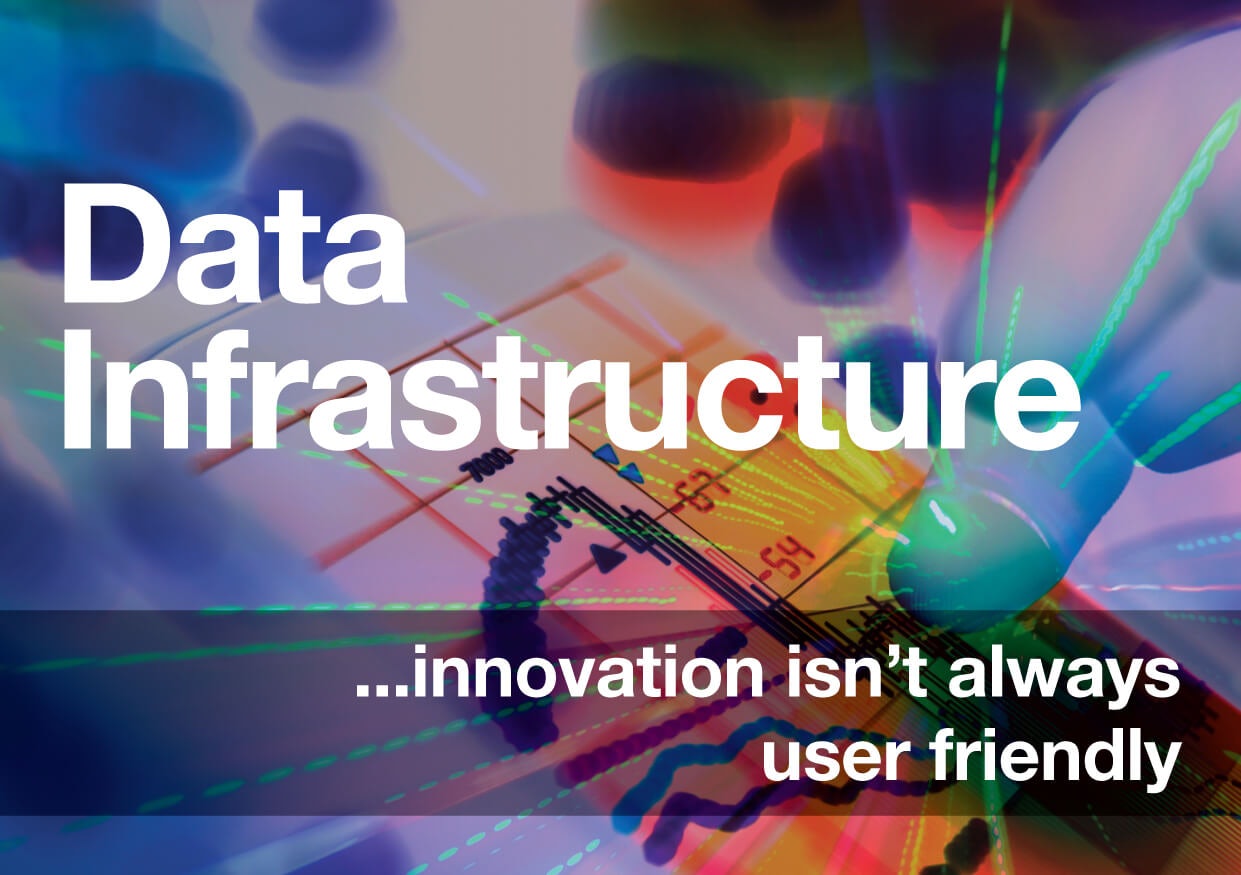Data Infrastructure – Innovation isn’t always user friendly
Innovation is no easy feat but sometimes it must be given direction and defined limits to ensure it can be converted to useful concepts, services or products.
Where necessary, it should be given a second look and reworked to deliver a more developed and better designed version.
This is particularly applicable in data infrastructure, where innovation seems to be the driving force and practicality often merely an afterthought. Due to the high demand, payoff and potential data related ideas are developed fast, sometimes not considering all aspects in the process.
A recently emerging trend that can be found in technology is prioritising innovation over user friendliness. Platforms and data systems have adopted the approach where rather than dealing with challenges that users, e.g. field officers face, they are designed for the “ideal future” of usage. Overly complicated and technical infrastructures do not take into account the reality that prevails in the field.
GDS lead user researcher Kieron Kirkland says in his blog that innovators are “building for an idealised data future” but without properly considering the diverse range of users, projects to improve data infrastructure risk failure.” He also pointed out that without concise reasoning workers are reluctant to become fluent in new systems.
An example of this is how metadata – datasets that have information about other data – is sometimes overwhelming or even unnecessary to the primary user who does not understand it. In these cases, it is redundant to include an analytics section to the system that shows the metadata in such an early stage of the process. Rather they could maximise concentration and efficiency by allowing the system to adapt to the user according to their experience, management level and skills, for example.
Dashboard sees the IT data industry as a bottom up sector where field and floor officers are the make of these companies. It is critical to integrate data infrastructures that are useful and speak the same language as the people using them. We would like to see data systems developed to serve employees and not the data itself as eventually it will benefit the company as a whole and we believe it is essential to take the whole company to the next level.
